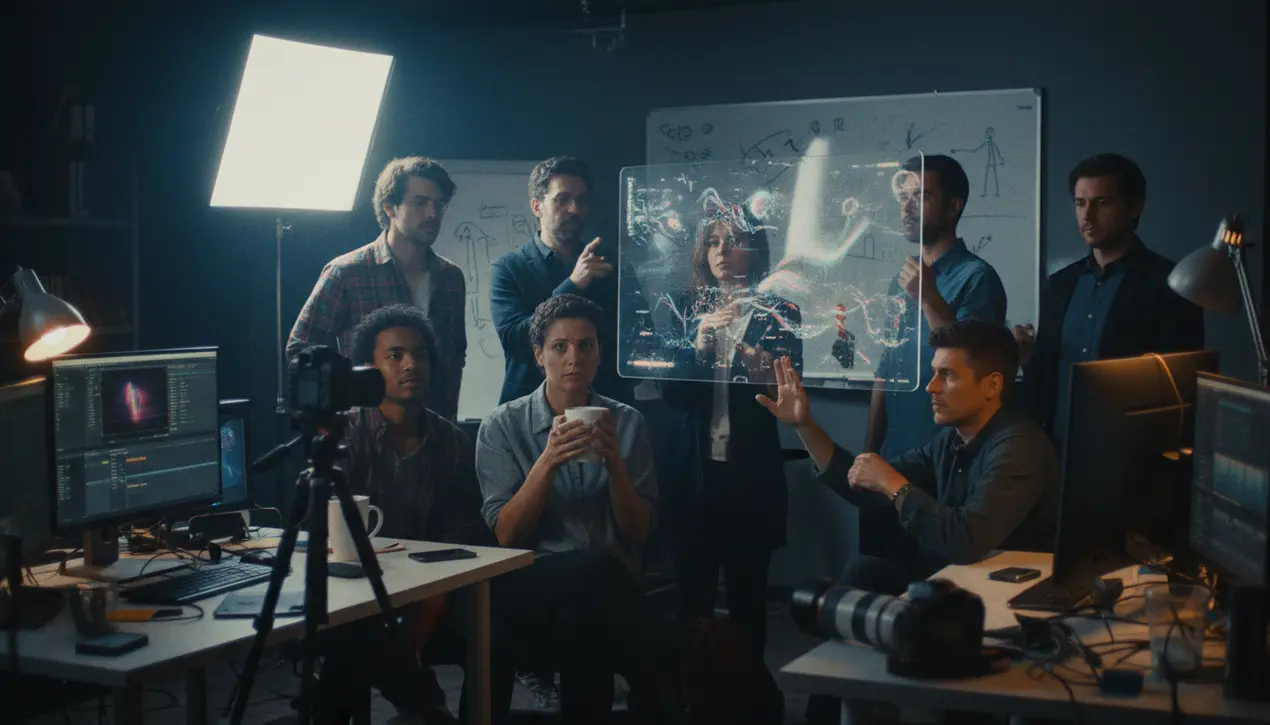
AIgenerative aiEthics and Copyright Issues
How video pros are navigating AI
SO
Sophia King
8 hours ago7 min read5 comments
The creative landscape is undergoing a seismic shift, and for video professionals, the tremors are both exhilarating and unnerving. I recently sat down with nine creators—from documentary filmmakers to commercial directors and YouTube auteurs—to understand how they're navigating the new frontier of generative AI.The consensus? It's a tool of immense power and profound paradox. On one hand, AI-powered platforms are democratizing aspects of filmmaking that were once the exclusive domain of big-budget studios; a solo creator can now generate storyboards, compose original scores, and even create complex visual effects with a few text prompts, collapsing weeks of work into hours.This is the bright, shiny promise—a future where the friction between vision and execution is dramatically reduced. Yet, beneath this surface of innovation lies a deep undercurrent of economic anxiety.Several editors I spoke with, who have built careers on painstaking post-production work, now find themselves competing with AI that can perform basic color grading, sound mixing, and even rough cuts. It’s not about replacement, they argue, but devaluation; when a client expects a ‘good enough’ AI edit for a fraction of the cost, the perceived value of human craft and nuanced judgment begins to erode.This economic pressure is compounded by a more visceral concern: fan backlash. One prominent YouTuber described the ‘uncanny valley’ of audience reaction when they subtly used an AI-generated voiceover for an intro.The comments section erupted not with praise for the technological marvel, but with accusations of inauthenticity and laziness. ‘There’s a covenant with your audience,’ they explained.‘It’s built on a perceived human connection. When you introduce AI in a way that feels deceptive, you break that trust.’ This sentiment was echoed by a documentary filmmaker who experimented with AI to recreate a historical figure’s voice. While technically flawless, the result felt emotionally sterile to test audiences, lacking the subtle imperfections and empathetic resonance a human actor brings.The backlash isn't just about the output; it's about the process. Audiences, it seems, are romantic about the ‘sweat of the brow’—the idea that great art requires human struggle.This creates a delicate tightrope for creators: how to leverage AI for efficiency and creative exploration without alienating the very community that sustains them. We are in a transitional period, akin to the early days of Photoshop or digital audio workstations, where the ethics and aesthetics of the tool are still being negotiated in public.The most forward-thinking pros aren't just using AI; they are strategically integrating it, often transparently. They use it for brainstorming concepts, generating mood boards, or automating tedious tasks like transcriptions, thereby freeing up mental space and time for the truly human-centric work of storytelling, emotional pacing, and directorial vision. The future, as one VR content creator aptly put it, belongs not to those who fear the algorithm, but to those who learn to conduct it, using AI as an instrument in their creative orchestra rather than letting it become the entire band.
#featured
#video professionals
#generative AI
#economic pressures
#fan backlash
#creative industry
#AI ethics
#content creation
Stay Informed. Act Smarter.
Get weekly highlights, major headlines, and expert insights — then put your knowledge to work in our live prediction markets.
Related News
Comments
Loading comments...
© 2025 Outpoll Service LTD. All rights reserved.